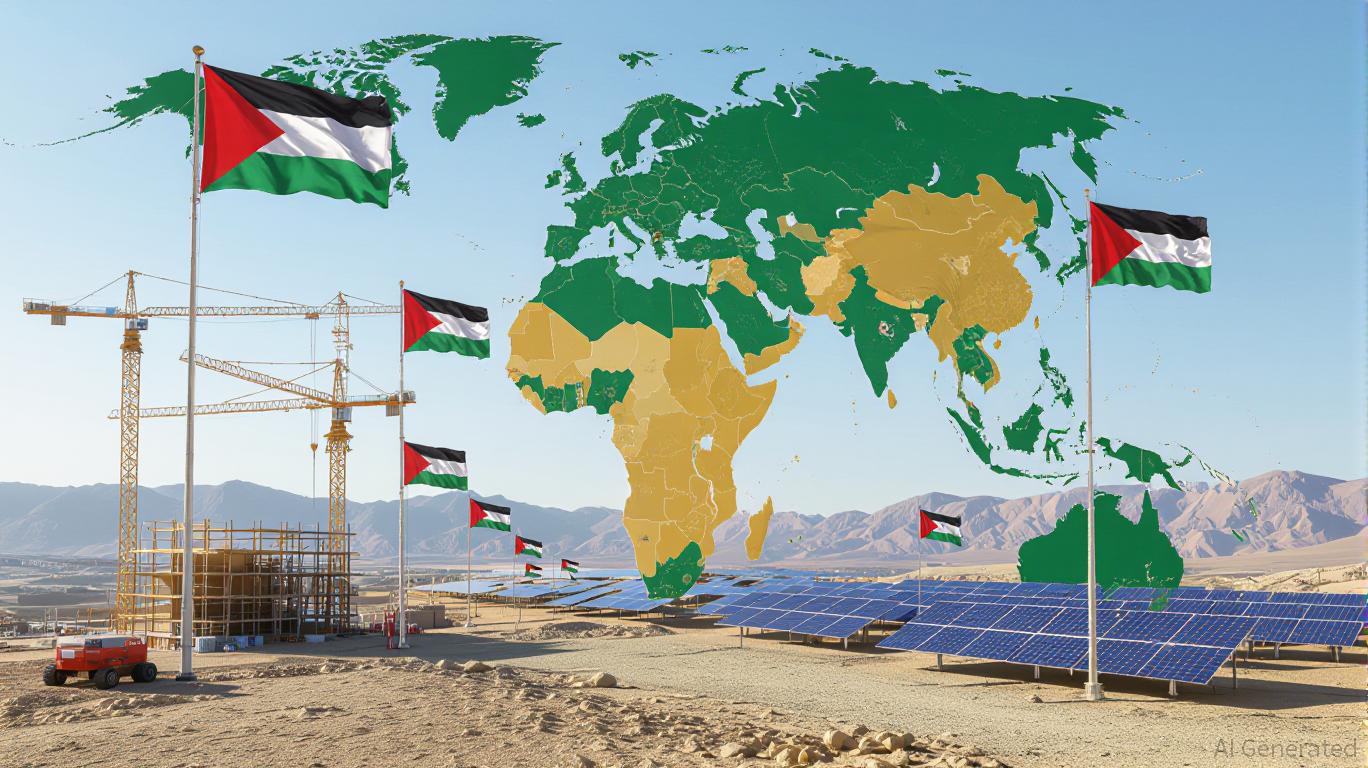
The international recognition of a Palestinian state by 147 countries as of 2025 marks a seismic shift in global geopolitics. While the immediate economic impact remains constrained by the lack of sovereign governance in Palestinian territories, the long-term implications for trade, investment, and regional integration are profound. Investors must now navigate a landscape where diplomatic recognition is increasingly tied to conditional economic reforms, humanitarian aid, and strategic realignments in the Middle East.
Geopolitical Realignment and Trade Reconfiguration
The recognition of Palestine by a majority of UN member states—including influential G7 nations like France, the UK, and Canada—has disrupted traditional alliances. These countries have conditioned their recognition on demands for a ceasefire in Gaza, humanitarian access, and Palestinian Authority (PA) democratic reforms. This shift has already triggered a reevaluation of trade policies. For example, the EU’s suspension of arms exports to Israel and the UK’s conditional support for PA governance reforms signal a broader trend of decoupling economic engagement from geopolitical loyalty to the U.S.
Investors should monitor how these diplomatic shifts translate into trade restrictions or sanctions. Sectors like defense, agriculture, and technology—where Israel has been a key player—could face reduced foreign direct investment (FDI) as multinational corporations reassess supply chains. Conversely, opportunities may arise in Palestinian infrastructure, renewable energy, and regional trade corridors, particularly if the PA secures international funding for development projects.
Conditional Recognition and Economic Reform
Countries such as Australia and Canada have explicitly linked their recognition to Palestinian governance reforms, including free elections and anti-corruption measures. This creates a unique investment dynamic: the PA’s ability to attract FDI and aid will depend on its capacity to meet these conditions.
For investors, this means prioritizing long-term partnerships with entities that support governance reforms. Infrastructure projects backed by the World Bank or IMF—such as solar energy installations or cross-border trade hubs—could become high-impact opportunities. However, risks remain high due to the PA’s historical governance challenges and the ongoing Israeli occupation.
Regional Integration and New Trade Corridors
The recognition of Palestine has also spurred discussions about regional economic integration. Neighboring countries like Jordan and Egypt, which maintain complex relationships with both Israel and Palestinian factions, could benefit from new trade corridors. For instance, Jordan’s role as a logistics hub for humanitarian aid to Gaza may expand into a broader economic partnership if Palestinian statehood stabilizes.
Investors should consider opportunities in cross-border logistics, renewable energy, and digital services. The Palestinian Authority’s potential accession to the World Trade Organization (WTO) could further open markets for Palestinian exports, though this remains contingent on political stability.
Risks and Ethical Considerations
While the recognition trend creates opportunities, it also introduces risks. The U.S. and its allies continue to oppose Palestinian statehood, creating a diplomatic rift that could destabilize markets. Additionally, the humanitarian crisis in Gaza and the PA’s governance issues pose significant challenges for investors.
Ethical investing frameworks are also evolving. ESG-focused investors are increasingly scrutinizing companies with ties to Israel’s defense sector, potentially leading to divestment campaigns. Firms in the technology and agriculture sectors, which rely on Israeli exports, may face reputational and regulatory risks.
Strategic Investment RecommendationsInfrastructure and Renewable Energy: Target projects in the West Bank and Gaza supported by multilateral institutions. Prioritize solar energy, water management, and cross-border logistics. Regional Trade Partnerships: Invest in Jordan and Egypt’s logistics sectors, which could benefit from expanded Palestinian trade corridors. Governance-Linked Aid: Support organizations or funds that provide technical assistance to the PA, aligning with conditional recognition criteria. Diversification: Hedge against geopolitical risks by diversifying portfolios across the Middle East and North Africa, avoiding overexposure to Israel-centric sectors. Conclusion
The growing recognition of a Palestinian state is reshaping the Middle East’s economic and geopolitical landscape. While immediate market impacts are limited, the long-term potential for trade reconfiguration, infrastructure development, and regional integration is significant. Investors who align with conditional recognition criteria and prioritize governance reforms will be best positioned to capitalize on emerging opportunities. However, vigilance is required to navigate the region’s complex political dynamics and ethical challenges.
